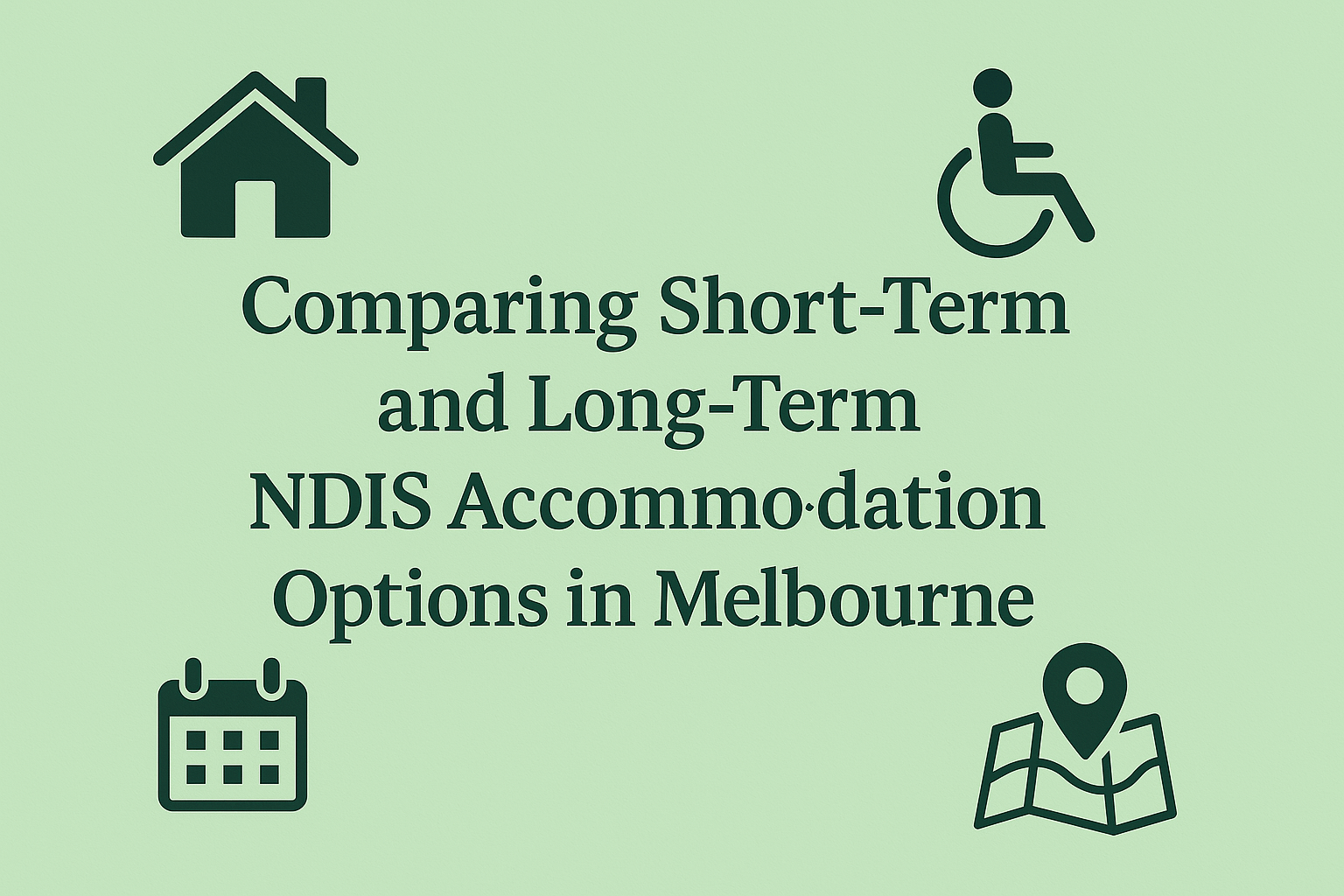The Australian National Disability Insurance Scheme (NDIS) offers disabled individuals numerous support services, one of which is accommodation. Depending on personal needs and situations, NDIS participants in Melbourne can be provided with ndis accommodation melbourne. Understanding the difference between the two accommodations is essential to make the proper choice on what best fits you or your loved one.
What is Short-Term NDIS Accommodation?
Short-term NDIS accommodation is provided to meet the needs of individuals who need short-term accommodation for various reasons. This could be for recovery from surgery, respite, or hospital to home. Short-term accommodation is generally for a brief period, from a few days to a few months, depending on the needs of the individual.
Main Features of Short-Term NDIS Accommodation:
- Respite Care: It gives family members and carers a brief break, knowing their loved one is well cared for.
- Post-Hospital Recovery: Patients recovering from operations or surgical procedures can stay in short-term accommodation while receiving the necessary care.
- Emergency Housing: This is for urgent placement for those in need due to unforeseen circumstances.
- Trial Periods: For new NDIS participants or new homes, temporary stays allow them to test the services and accommodation before settling into a long-term arrangement.
Short-term accommodation can be tailored to the requirement and is ideal for circumstances of a temporary nature or circumstances of uncertainty. Short-term accommodation is typically utilized for transition purposes and allows room for the assessment of ongoing care requirements by the participant and their carers.
What is Long-Term NDIS Accommodation?
Permanent NDIS housing, however, is for individuals who require permanent living situations. This is best suited for individuals who require ongoing support and need a permanent, long-term living situation that accommodates their disability-related needs.
Long-Term NDIS Accommodation Key Features:
- Permanent Housing: The client is housed in a permanent residence tailored to address their unique disability support needs.
- Personalized Support: Permanent housing provides an individual with personalized support, including support for daily living, mobility support, and communication support.
- Independence: Most long-term environments are structured to provide as much independence as possible, with the appropriate level of support when needed. – Community
- Integration: Permanent housing offers the participant the opportunity to reside in a community, use local services, socialize, and become integrated into society.
Long-term NDIS accommodation is ideal for individuals who need a safe environment with ongoing support tailored to their long-term needs. Accommodation can be in the form of shared living or self-contained units and can be designed to enable the highest level of independence and quality of life.
Comparison of Short-Term and Long-Term NDIS Accommodation
Length of Stay: The most significant variation between short-term and long-term NDIS accommodation is the length of stay. Short-term accommodation is short-lived, while long-term accommodation offers a long-term housing solution.
Flexibility: Short-term accommodation is flexible, particularly for the person who requires accommodation temporarily. It is suitable for transition purposes or when assessing ongoing long-term needs. Long-term accommodation is less flexible since it is a lifelong arrangement, although it is purposed to provide permanent care and support.
Cost Factors:
Short-term accommodation is more expensive per day than long-term accommodation because short-term accommodation is intended to address current or short-term needs. Long-term accommodation may be cheaper in the long run, particularly for those with long-term needs. Participants should discuss their funding options with their NDIS planners to ensure the accommodation fee is within their means.
Type of Support:
Short-term accommodation is more focused on emergency needs, respite, and rehabilitation. It serves short-term care, and the amount of support can be variable depending on the participant’s needs. Long-term accommodation is more for extensive and long-term care, and personalized care plans can be modified to meet the participant’s needs.
Autonomy and Tailoring:
NDIS long-term accommodation is more personalized, and participants can live independently but continue to receive the care they require. Short-term accommodation is less focused on independence because the main purpose is to provide temporary care.
Which Option Is Best for You?
Deciding between short-term and long-term NDIS accommodation is mostly based on the needs of the individual. If you or your family member needs short-term respite care or transitioning between different types of care, then short-term accommodation would be a good choice. Long-term accommodation would be a better choice for those with long-term support needs as it will give a sense of stability and tailored living.
It’s better to sit down with your NDIS planner to talk about the best choice for you. They will be able to evaluate your needs and make sure that you are receiving the proper accommodation to assist your health, independence, and well-being.
Conclusion
In Melbourne, both short and long-term NDIS accommodation melbourne arrangements are beneficial to individuals with disabilities. Short-term accommodation is suited for temporary needs like recovery or respite, whereas long-term accommodation ensures stability and ongoing care. By being aware of the distinctions and analyzing your individual requirements, you are able to make an informed choice that improves your lifestyle and assists in your independence.
For more details regarding NDIS accommodation in Melbourne, you can contact Abundant Hope, a reputable disability support services provider.

